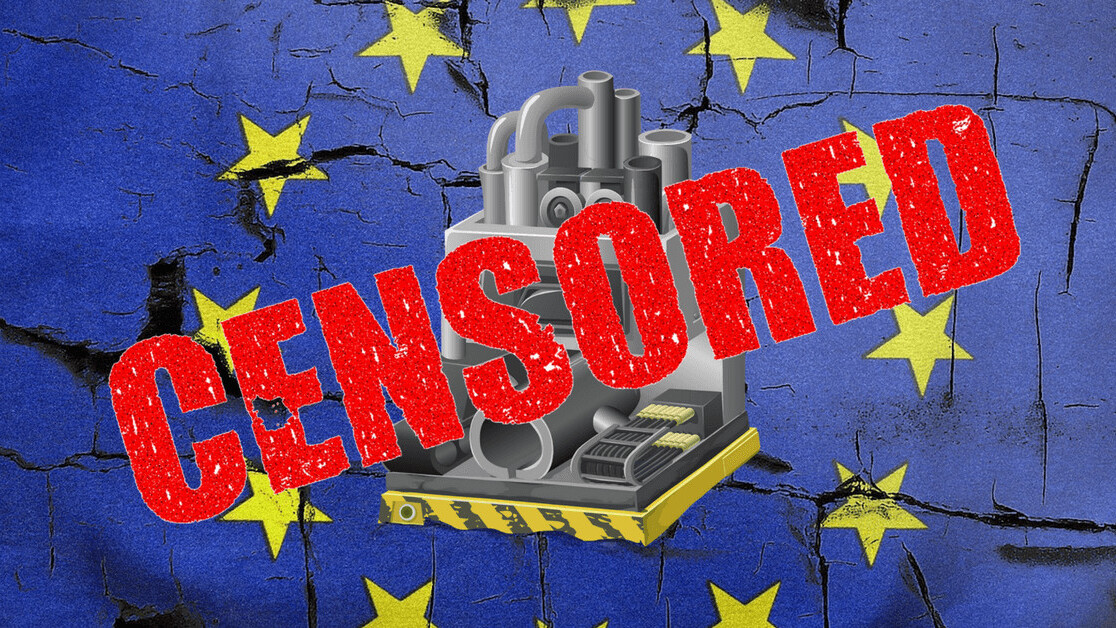
This is one of those political-tech debates that could turn nasty.
Last week, the European Parliament’s MEP in charge of overhauling the EU’s copyright laws did a U-turn on his predecessor’s position. Axel Voss is charged with making the EU’s copyright laws fit for the Internet Age, yet in a staggering disregard for advice from all quarters, he decided to include a obligation on websites to automatically filter content.
In 2016 the European Commission proposed a new Directive on Copyright in the Digital Single Market. While there are other serious concerns about the proposals, Article 13, which sets out how online platforms should manage user-uploaded content appears to have the most dangerous implications for fundamental rights. Since then, European Parliament committees have done some good work improving the draft law — which makes Voss’ 180° spin all the more alarming.
Never mind that the new Article 13 proposal runs directly contrary to an existing EU law — the eCommerce Directive — which prohibits member states from imposing “general monitoring” obligations on hosting providers, Voss’ own party colleague and predecessor, Therese Comodini Cachia (who left to take up a seat in her national parliament in Malta), was against the idea.
The European Parliament committee for Justice and Civil Liberties (LIBE) also tried to come up with alternatives (again, drafted by Voss’ own party colleagues) that would safeguard fundamental rights by removing reference to “content recognition technologies,” and no fewer than six national governments are so concerned about the idea that they have requested legal advice.
The aim of the rule, which is in line with the European Commission’s proposals more than a year ago, is to strengthen the music industry in negotiations with the likes of YouTube, Dailymotion, etc. While laudable — of course creators should be paid if someone is making money off their work — it is ridiculous to suggest a method that would effectively undermine Europe’s guaranteed Freedom of Expression and Information, and create a new justification for widespread censorship.
According to Pirate Party MEP Julia Reda, Voss appears to have “learned nothing from the year-long debate,” and describes the move as a “green light for censorship machines.” That phrase “censorship machines” will anger (gaslight?) those in favor of stronger copyright controls, but it’s no exaggeration.
The six countries — Belgium, the Czech Republic, Finland, Hungary, Ireland, and the Netherlands — that sought advice from the Council’s Legal Service last July, asked specifically if “the standalone measure/obligation as currently proposed under Article 13 [would] be compatible with the Charter of Human Rights” and queried “are the proposed measures justified and proportionate?” Well if you have to ask…
Under Voss’ revised Article 13, websites and apps that allow users to upload content must acquire copyright licenses for EVERYTHING, something that is in practice impossible. If they cannot, those platforms must filter all user-uploaded content.
In the six countries’ original query it was pointed out that “the proposal does not provide for appropriate measures that would enable these users to actually benefit from public interest copyright exceptions. It is important to point out that certain exceptions to copyright, such as e.g. parody or the quotation right are the embodiment in copyright of fundamental rights other than the right to property.” Nothing in Voss’ so-called “compromise” will allay those concerns.
Pro-filtering advocates will say that the process is only trying to find copyright-infringing material, not monitoring all uploaded content, without explaining how you can find something without looking for it.
The truth is that this latest copyright law proposal favors the rights-holders above anyone else. But it is worth remembering, as the debate is framed as copyright Davids against big tech Goliaths, that rights-holders are very often NOT the original creators. In fact, they are hugely well funded middlemen who skim off everyone in the value chain, and will stop at nothing to protect their business model even as it becomes obsolete thanks to technology that allows genuine creators to earn money in different ways.
Ironically, rights-holders claiming to act on behalf of the creator can actually prevent the creator from making a living — the impressively-named Miracle of Sound had his own work taken down by filters set up to act on his behalf by a global rights administration network. With no humans in the loop to check, the filter didn’t realize he was posting his own work!
Copyright laws are frequently the thin end of the wedge for the erosion of fundamental rights online, so even if you don’t care who wins in the corporate David versus Goliath battle, remember the Fundamental Right to Freedom of Expression applies to EVERY citizen — let’s not let that get trampled underfoot.
Get the TNW newsletter
Get the most important tech news in your inbox each week.




